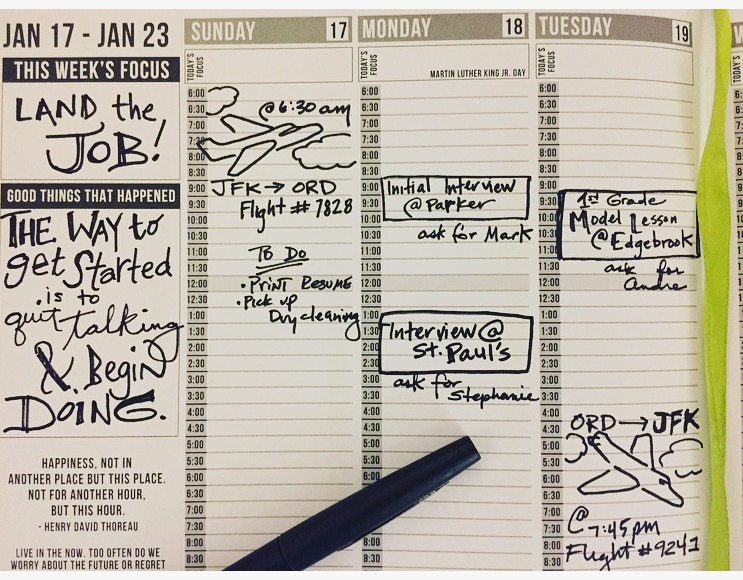Geographical location is the final of three pieces (location, type of school, type of position) in the search for the dream job.
When it comes to location, you really only have two choices, a) search in one very specific place or b) open your search to the ends of the world. Ok, really there are some other options. You may limit your search to big cities, or the Midwest, or to international posts only. There are pros and cons to the search regardless of what your preferences are in terms of location.
Considering teachers are all adults, it is likely that your search will be limited geographically based on GROWNUP HUMAN CIRCUMSTANCES. Whether you have family obligations (a spouse, children, parents, a close-knit circle of friends and dogs who are like family…), a mortgage, or other details of your life that you are unable or unwilling to change, you may not have a choice when it comes to the location of your job. If that is the case, location obviously takes priority in your job search. Having a firm location can be a huge pro. You can really zero in on the jobs that are available. It is also easier to schedule job interviews if all the schools that you are considering are not too far from one another.
A set location can really focus your job search, however, if you are able and willing to relocate, you certainly open up your options. If you are flexible when it comes to location, you may be more likely to land the position you want most in a school that you love.
That being said, it can be complicated to navigate the interview process from a distance. It can become expensive if schools are unable to pay for your travel expenses (which will most likely be the case.) If you are traveling to multiple schools in order to interview, arrange your visits in a way that makes sense geographically. Prospective schools will likely be as flexible as possible within their hiring timeline if they know you are traveling a long distance to meet. Try to group interviews so that you are a) not missing multiple days at your current position in order to interview, or b) spending extra money to travel to the same area multiple times.
Think realistically about what it is like to relocate for work. If you love adventure and meeting new people; learning new subway maps or rural roads, moving to a new place can be awesome. Even so, it can be hard to move, particularly if you do not have a support system wherever you end up. I have moved cross-country several times for work, and I have been grateful for the professional opportunities and life-adventures that moving has afforded me (and the mad IKEA furniture building skills I have honed), but I will say, it is not an easy road to start from scratch in a new place. It is difficult to start a new job in a new school—that stress can be heightened for some when adjusting to a new location and lifestyle. Think about what would be best for YOU.
There is no right answer in figuring out how to prioritize your search. Some decisions may be clearer than others, while other areas may offer you the opportunity to be more flexible all in the name of finding a job that gets you close to the exact job you want in the long run. Be reasonable when it comes to your “must haves” and your “oh-no-no’s” in the positions that you pursue and ultimately accept. If you can find a perfect fit in 2/3 of the areas discussed in this three part blog post, give yourself a serious high-five, get to work, and gain all that experience that will turn that position into the dream job before you know it!
Latest posts by Annie Walsworth (see all)
- Lost Teeth in Kindergarten - November 30, 2016
- I Have, Who Has? {Freebie} - November 21, 2016
- Top Six Kindergarten Community-Building Activities - September 21, 2016


